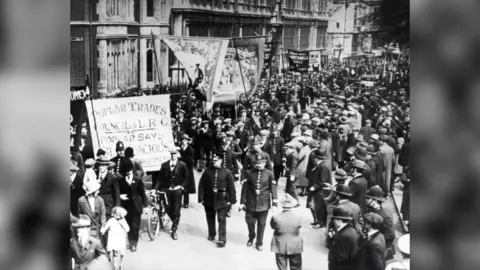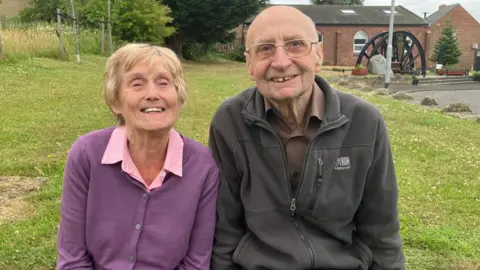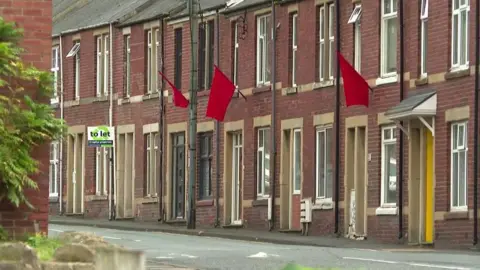Centenary of 'Little Moscow' colliery lockout
 Chopwell History Club
Chopwell History ClubA former pit village is marking the 100th anniversary of a miners' lockout.
Pit bosses closed Chopwell Colliery in Gateshead after employees refused to accept less pay and worse conditions, with the dispute lasting 17 months.
Support for the miners came from around the world, including Russia, which led to the village being nicknamed "Little Moscow".
The centenary is being celebrated by community events, including a podcast and and digital film made by local young people.
Chopwell had already been known for its strong left-leaning politics and had some strong, very vocal union leaders who had been inspired by the revolution in Russia.
However, in the end, the miners were forced to return to work for less money than before.
The families of those affected still speak of the hardship of a time with no work and no money, and their memories are being documented in the project by young people.

Julie Nicholson, from Digital Voice for Communities, which made the podcast said: "We're hearing people's first-hand accounts of what it was like to be hungry, to be cold, to be arrested on trumped-up charges because they wanted to break the strike."
Andrea Stoddart said her mother, who was a child at the time, could remember the arrival of a regiment of police.
"They started to march down the village in their hobnail boots, truncheons raised, she said she could always remember the noise those boots made," she said.
Kate Kelly, head teacher at Chopwell Primary School, said it was important children "understand the unique history of our village".
"Getting involved in this project makes them feel really proud about where they come from," she added.

